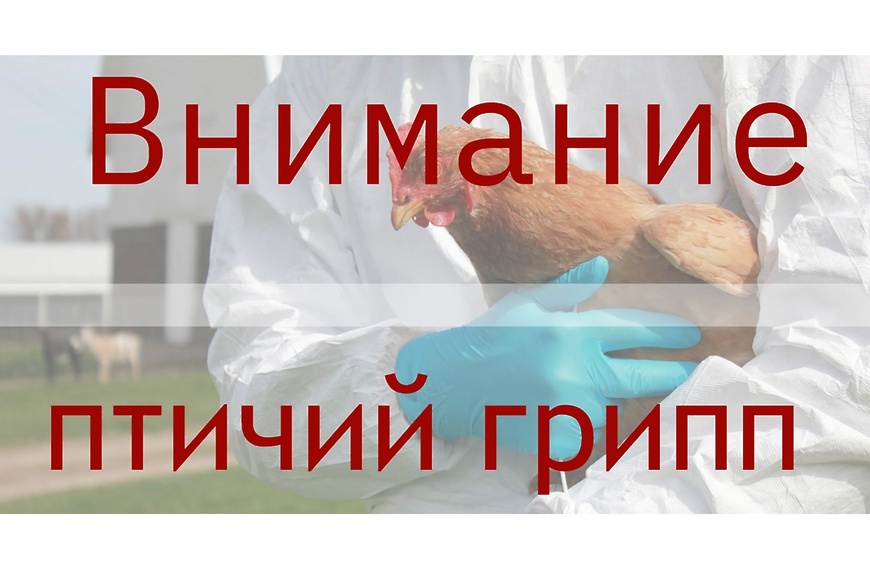AVIAN INFLUENZA

According to information from Rospotrebnadzor and ProMED-mail of the International Community for Infectious Diseases:
In May 2023, 3 outbreaks of avian influenza (serotype H5N1) were registered in the Russian Federation among wild birds:
- the first outbreak was registered on 05/06/2023 in Maloyaroslavets, Maloyaroslavets district, Kaluga region. Mortality of wild waterfowl (gulls, terns) (62 cases detected);
- the second outbreak was registered on 05/08/2023 in Smolensk, Smolensk region. Mortality of wild waterfowl (gulls, terns) (5 cases detected);
- the third outbreak was registered in Moscow. The epizootic focus is the area near Borisovsky Pond (Brateevo district) due to the death of wild birds, another 11 districts of Moscow are classified as a threatened zone (Kapotnya, Maryino, Lyublino, Pechatniki, Moskvorechye-Saburovo, Tsaritsyno, Biryulevo East, Orekhovo-Borisovo North and South, Zyablikovo ).
05/04/2023 An outbreak of bird flu (serotype H5N1) among wild birds was registered in Latvia. 7 cases of death were detected among black-headed gulls in the vicinity of the Daugavpils swamp, south-eastern part of Latvia.
Over the past period of 2023, 8 outbreaks of bird flu among mammals were registered in Germany (death of gray seals, South American coatis and red foxes).
A human case of avian influenza (H5N1) was reported in Chile in March 2023.
For reference: avian flu is an acute infectious disease caused by the type A influenza virus.
All types of birds are susceptible to the flu, including chickens, turkeys, ducks, quails, capercaillie, storks, gulls and practically all other types of synanthropic (pigeons , sparrows, crows, jackdaws, etc.), wild, exotic and ornamental birds, as well as pigs, horses, ferrets, mice, cats, dogs, other vertebrates and people.
This disease is characterized by a potentially high pathogen hazard to humans.
The main source of the virus in nature is waterfowl, which carry the pathogen in the intestines and release it into the environment with saliva and droppings.
Infection to humans and poultry occurs through close contact with infected dead wild or poultry. In some cases, human infection is possible when eating meat and eggs of sick birds without sufficient heat treatment. The secretions of infected birds, getting on plants, into the air, water, can infect humans and healthy birds when drinking and bathing, through airborne droplets and airborne dust, through dirty hands.
It can take anywhere from a few hours to 5 days for an affected person to show signs of illness. Bird flu disease begins acutely with chills, fever up to 38 ° C and above, muscle and headaches, sore throat. Watery loose stools and repeated vomiting are possible. After 2-3 days, breathing becomes difficult, a wet cough appears, often with an admixture of blood. Bird flu is dangerous because it can very quickly lead to pneumonia, give severe complications to the heart and kidneys, and affect the brain.
In order to prevent the disease in natural conditions, it is necessary:
- avoid contact with a dead and suspicious-looking bird: with weakness, swelling of the subcutaneous tissue in the head, neck , chest, swelling of the larynx, cyanosis of visible mucous membranes, tail contaminated with excrement, partial paralysis and muscle cramps;
- if you find a sick bird, you must inform the veterinary service about this;< /li>
- observe personal hygiene, do not eat or smoke without first washing your hands;
- do not store with ready-to-eat foods (bread, cheese, sausage, etc.) raw eggs and poultry meat;
- eat poultry meat and eggs after thorough heat treatment;< /li>
- use only boiled or bottled water;
- upon returning home, wash shoes thoroughly, wash and dry clothes in the sun;
- for hunters - shoot only healthy birds; pluck and gut the bird on the spot; work only in rubber shoes and gloves, gauze bandage; do not touch your face with unwashed hands; do not pollute surrounding objects and soil with blood and internal contents of the bird; after processing the poultry, burn all biological waste; do not feed the internal organs of the bird to other animals; wash hands with soap after each manipulation; treat cutting equipment with disinfectants.
If signs of illness appear, seek medical attention immediately.





































